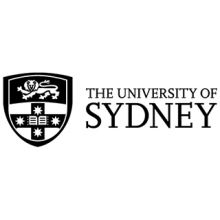Enlisting academics to pursue the United Nations’ Sustainable Development Goals (SDGs) is an “abdication of responsibility” by politicians, Times Higher Education’s World Academic Summit has heard.
University of Melbourne vice-chancellor Duncan Maskell said politicians had “invented” the SDGs and then “chucked the ball over the fence” to universities. “To assume that researchers…should just suddenly come up with all the answers is very naive,” he told the summit at the University of Sydney.
“Many of the problems with solving the SDGs [are because] the politicians don’t want to do the obvious things they should be doing to solve them.”
Professor Maskell said he had spent considerable time advising politicians about food safety in his native UK. “They were always asking for the expert scientific panel to provide evidence that supported policy,” he said.
“I found that to be an extremely dangerous Machiavellian phrase, because some of them actually meant, ‘This is our policy – you go and find the evidence to support it.’ That’s anti-science.”
But Griffith University vice-chancellor Carolyn Evans said it was wrong to characterise the SDGs as purely a political construct. Professor Evans said academics had contributed to the formation of the goals, as had people from other non-government sectors.
“The SDGs resonate with a lot of academics,” she told the summit. “Universities…can act as an honest broker between different parties who may not be able to come together otherwise.”
Professor Evans said universities’ capacity to mobilise different disciplines was a unique strength. She said every field could prove unexpectedly valuable, citing her 1990s research into religious freedom.
“Everybody that cared for me said, ‘Don’t work on religion! There’s no future in that; it’s over!’ Sadly, for all the worst reasons, by the end of 2000 everybody was saying: ‘Who knows anything about religion?’
“Those of us who…get to decide what’s going to matter in 10 or 20 years [need] a little humility and [to] occasionally allow people to pursue their passion and interest. You never know when a deep knowledge of Peter the Great might come in handy.”
Professor Maskell, whose research expertise is in infectious diseases, said academics had a natural inclination to mark out ever narrower disciplinary specialities. “I’ve had colleagues who thought that they were working in a multidisciplinary fashion because the cell line that they were working on was different from the cell line in the next-door lab.”
But tightly defined expertise did not necessarily suit real-world conditions, he said, citing his research into species-hopping bacteria in Myanmar. The project had initially involved fieldwork by social anthropologists, who discovered that the reality of Burmese agricultural practices differed markedly from official versions.
“Bringing together pretty hard-core molecular science with social anthropologists [was] powerful,” Professor Maskell told the summit. “We were able to fine-tune our sampling structures to ask the right questions.”
But such work is “really hard to get funded”, he added, largely because grant reviewers have monodisciplinary perspectives. “Immediately you get some negative commentary, and with very low success rates in grants, that’s enough to kill it.”
Register to continue
Why register?
- Registration is free and only takes a moment
- Once registered, you can read 3 articles a month
- Sign up for our newsletter
Subscribe
Or subscribe for unlimited access to:
- Unlimited access to news, views, insights & reviews
- Digital editions
- Digital access to THE’s university and college rankings analysis
Already registered or a current subscriber? Login












